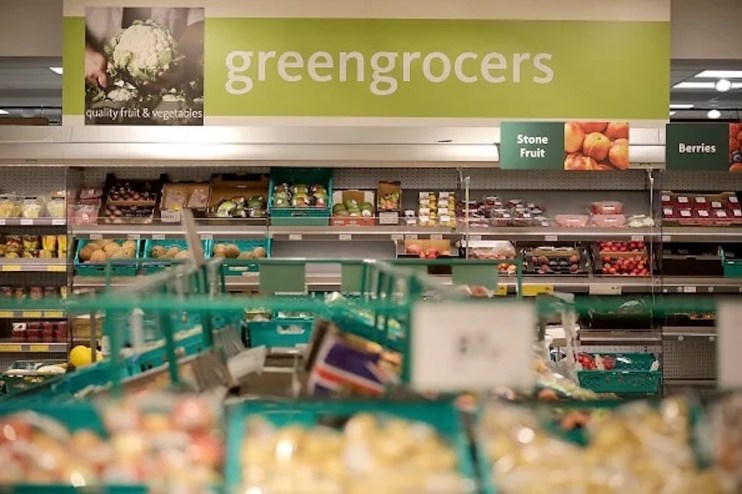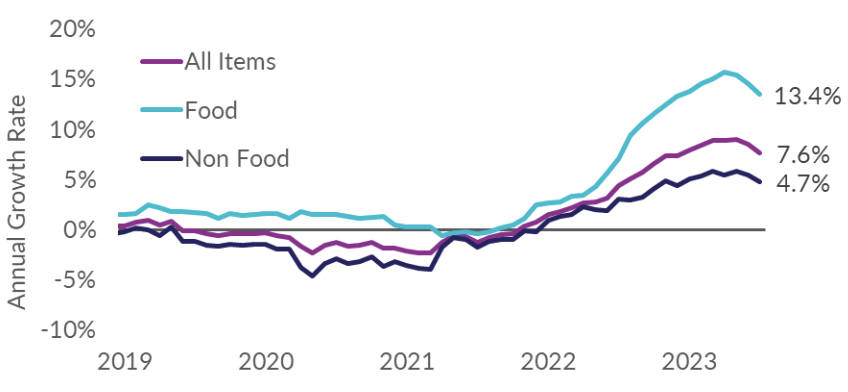Food inflation slumps to lowest level this year but experts caution against declaring victory yet

Food inflation has slipped to its lowest level this year and has fallen for the third month in a row, an encouraging signal that suggests the UK is through the worst of the cost of living crisis, a new survey out today shows.
The cost of groceries climbed 13.4 per cent over the year to July, down from an increase of 14.6 per cent in the previous month, according to the British Retail Consortium (BRC).
Last month’s decline does not mean food prices are falling, just that the pace at which they are rising has slowed. Over the last month, they actually lifted 0.3 per cent.
The BRC’s data tends to be seen as an early guide as to where official numbers from the Office for National Statistics are headed.
“Food price inflation also slowed to its lowest level this year, with falling prices across key staples such as oils, fats, fish, and breakfast cereals,” Helen Dickinson, chief executive of the BRC, said.
Weakening grocery price growth is a boost for the Bank of England, which has been blindsided by higher than expected inflation for nearly two years.
Shop price inflation is coming down

In the May monetary policy report, the Bank admitted that “almost all of the upside news in CPI inflation data since the February report has been accounted for by developments in food”.
Governor Andrew Bailey and co are tipped to back a 14th straight interest rate rise on Thursday, taking them to a fresh 15 year high of 5.25 per cent with a 25 basis point jump. They will release fresh inflation and growth forecasts too.
Dickinson urged policymakers not to declare victory over food inflation just yet.
“Further supply chain issues may add to input costs for retailers in the months ahead. Russia’s withdrawal from the Black Sea Grain Initiative and subsequent targeting of Ukrainian grain facilities, as well as rice export restrictions from India are dark clouds on the horizon,” she said.
Overall shop price inflation as measured by the BRC also yielded good news, falling to 7.6 per cent and also the lowest level in 2023.
Rising food prices have disproportionately knocked the poorest British families’ finances as they spend a larger share of their monthly income on basic goods.
Supermarkets have been accused of beefing up grocery prices to rebuild margins after they were narrowed during the pandemic.